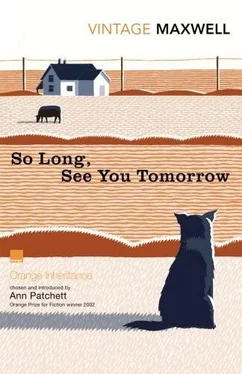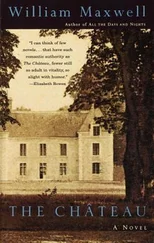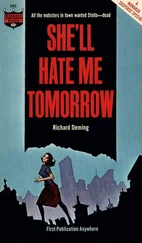Roaming the courthouse square on a Saturday night, the tenant farmers and their families were unmistakable. You could see that they were not at ease in town and that they clung together for support. The women's clothes were not meant to be becoming but to wear well, to last them out. The back of the men's necks was a mahogany color, and deeply wrinkled. Their hands were large and looked swollen or misshapen and sometimes they were short a finger or two. The discontented hang of their shoulders is possibly something I imagined because I would not have liked not owning the land I farmed. Very likely they didn't either, but farming was in their blood and they wouldn't have cared to be selling real estate or adding up columns of figures in a bank.
On the seventh day they rested; that is to say, they put on their good clothes and hitched up the horse again and drove to some country church, where, sitting in straight- backed cushionless pews, they stared passively at the preacher, who paced up and down in front of them, thinking up new ways to convince them that they were steeped in sin.
If I knew where Cletus Smith is right this minute, I would go and explain. Or try to. It is not only possible but more than likely that I would also have to explain who I am. And that he would have no recollection of the moment that has troubled me all these years. He lived through things that were a good deal worse. It might turn out that I had made the effort for my sake, not his.
I don't know where he is. It isn't at all likely that we will run into each other somewhere or that we would recognize each other if we did. He could even be dead.
Except through the intervention of chance, the one possibility of my making some connection with him seems to lie not in the present but in the past — in my trying to reconstruct the testimony that he was never called upon to give. The unsupported word of a witness who was not present except in imagination would not be acceptable in a court of law, but, as it has been demonstrated over and over, the sworn testimony of the witness who was present is not trustworthy either. If any part of the following mixture of truth and fiction strikes the reader as unconvincing, he has my permission to disregard it. I would be content to stick to the facts if there were any.
The reader will also have to do a certain amount of imagining. He must imagine a deck of cards spread out face down on a table, and then he must turn one over, only it is not the eight of hearts or the jack of diamonds but a perfectly ordinary quarter of an hour out of Cletus's past life. But first I need to invent a dog, which doesn't take very much in the way of prestidigitation; if there were cattle there had to be a dog to help round them up. In that period — I don't know how it is now — farm dogs were usually a mixture of collie and English shepherd. The attraction between dogs and adolescent boys can, I think, be taken for granted. There is no outward sign of trouble in the family. The two farms are both on the right-hand side of the new hard road and have a common boundary line. The Wilson house, with its barns and sheds, is next to the road and an eighth of a mile closer to town. To get to where Cletus lives you have to drive up a narrow lane that has a gate at either end of it.
When it is almost time for Cletus to come home from school the dog squeezes herself under the gates and trots off up the road to the mailboxes, where she settles down in a place that she has made for herself in the high grass with her chin resting on her four paws. These mailboxes too are on posts and look like wading birds.
In the very few years since my father disposed of the horse and carriage, there has been a change in the landscape. It is now like a tabletop, the trees mostly gone, the hedges uprooted in favor of barbed wire — resulting in more land under cultivation, more money in the bank, but also in a total exposure. Anyone can see what used to be reserved for the eye of the hawk as it wheeled in slow circles.
If a farm wagon or a Model T Ford goes by, the dog follows it with her eyes but she does not raise her head. She is expecting a boy on a bicycle.
The tenant farmers whose names are on those mailboxes where the dog lies waiting for Cletus to come home from school apply the words of the Scriptures to their own lives, insofar as they are able. Including the commandment to do unto others as you would have them do unto you. And they cling together when they are in town largely because they cannot imagine a situation in which the people they see in the stores or on the sidewalk (and who do not appear to see them) could possibly need their help. It is different in the country.
The bicycle is painted a bright blue, and Cletus has only had it for three months. When he first saw it, beside the Christmas tree, his heart almost stopped beating. On rainy days he walks to school rather than have it get old and rusty like the other bikes in the wooden rack at the side of the one-room schoolhouse. With the dog loping along beside him he pedals for dear life over the final stretch of road. The dog waits each time until he has closed the gate and then she miles around, but none of those others would have been waiting in absolute stillness for Cletus to come home from school, or have seemed like all his heart desired when he walks in out of the cold.
When Cletus stands by the pasture fence, an old white workhorse comes, expecting a lump of sugar and possibly hoping to be loved. Anyway, Cletus loves him. And, rounding up the cows, rides him in preference to any of the other horses. And when he has tears to shed he does it with his forehead against the horse's silky neck.
In the daytime the sky is an inverted bowl over the prairie. On a clear night it is sometimes powdered with stars.
Coming home from school Cletus often sees Mrs. Wilson and the two little boys out by the clothesline. Risking a fall he takes both hands off the handlebars and waves, and they wave back.
It is not by accident that Cletus is often in the Wilsons' buggy when the two families drive off to church together or to town to see the fireworks on the Fourth of July. They are his second family. If his mother sends him to the Wilsons' because she has suddenly discovered that she is out of vanilla or allspice, there is a good chance that A4rs. Wilson will cut a slice off a loaf of bread that has just come out of the oven and spread butter and jam on it and give it to him. He likes her apart from that, though; he likes her because she is always the same.
When it was time for him to go to school the Wilson girls showed him the shortcut through the fields to the other road and the one-room schoolhouse, and Hazel had to tell the teacher his name. With all those strange boys and girls staring at him he lost the power of speech. The teacher was young and pretty and showed him how to hold the colored crayon.
If Cletus wants to know something and his father isn't there to show him, he goes looking for Mr. Wilson. Who doesn't lose patience with him if he fails to get it right on the first try. When Mr. Wilson says to Cletus's father, "I saw a cock pheasant crossing the road this morning, I don't suppose you feel like taking the afternoon off to go hunting," it is understood that, providing it isn't a school day, Cletus will go with them. His mother was afraid and wanted him to wait until he was older but Mr. Wilson said, "Better for him to learn now, while he hasn't got a lot of other things in his mind. .
Here, boy. You hold it like this. With the stock against your right shoulder. And you keep both eyes open and sight along the barrel to that bead. If you obey the rules that your father tells you and don't go out with some fool who's never had a shotgun in his hand before, you can't get into trouble."
Sometimes he rests his hand on Cletus's shoulder while he is talking. At such moments Cletus feels that no matter what he might do, even if it was something quite bad that he had to go to jail for, Mr. Wilson would see a reason for it. And stand by him. Not that his father wouldn't also, but Mr. Wilson is somebody Cletus isn't even related to.
Читать дальше












